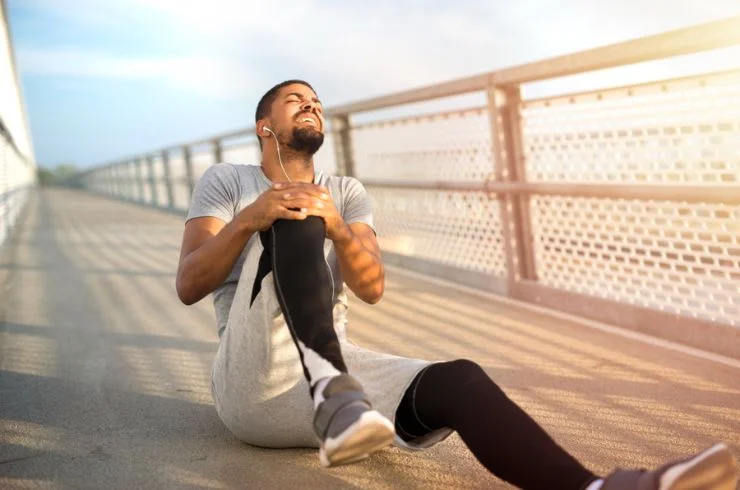Sports Injury Treatment

Sports Injuries Treatment in Hyderabad
Engaging in sports and physical activities, whether at a competitive or recreational level, inherently carries the risk of injury. From seasoned athletes to casual participants, anyone can experience sports-related injuries. Fortunately, with over 20 years of experience, Freedomfrompain offers comprehensive treatment options for various sports injuries, ranging from overuse injuries to those resulting from traumatic incidents.
Common Sports Injuries
- Ankle Sprain: Injury to the ligaments surrounding the ankle, often due to twisting or rolling the ankle.
- Groin Pull: Strain or tear of the muscles in the inner thigh.
- Hamstring Strain: Injury to the muscles at the back of the thigh.
- Shin Splints: Pain along the shin bone, often due to overuse.
- Knee Injuries:
- ACL Tear: A tear in the anterior cruciate ligament, common in sports that require sudden stops and changes in direction.
- Patellofemoral Syndrome: Pain due to the repetitive movement of the kneecap against the thigh bone.
Tennis Elbow (Epicondylitis): Inflammation of the tendons in the elbow, typically caused by repetitive motion.
Recovery and Prevention
Recovery from sports injuries can be significantly enhanced by the following measures:
- Immobilization: Supporting and immobilizing the affected muscle, joint, or limb to facilitate healing and prevent further damage.
- Warm-Up: Thoroughly warming up before activities can help prevent injuries.
- Protective Gear: Wearing appropriate protective equipment is crucial for safeguarding against injuries.
- Equipment Check: Ensuring that sports equipment is in good condition can minimize the risk of accidents.
- Awareness: Staying alert to your surroundings and recognizing when to stop if you feel fatigued or in pain can prevent injuries.
Treatment Options for Sports Injuries
At Freedomfrompain, a variety of treatment modalities are available to address sports injuries effectively:
1.Medicines/Pharmacotherapy:
- Over-the-counter pain relievers (such as ibuprofen or acetaminophen) can help alleviate pain and reduce inflammation.
- Prescription medications may be provided for more severe pain.
2. Braces:
- Braces or supports can help stabilize injured areas and provide the necessary support during recovery.
3. Platelet-Rich Plasma Therapy (PRP):
- This advanced therapy involves drawing a small amount of blood from the patient, processing it to concentrate the platelets, and then injecting it into the injured area. PRP can accelerate healing and reduce pain.
4. Injections:
- Corticosteroid injections can provide relief from inflammation and pain.
- Hyaluronic acid injections may be used to lubricate joints, particularly in cases of arthritis or degenerative joint conditions.
Services
- Ankle Pain Treatment
- Arthritis Pain Treatment
- Back Pain Treatment
- Cancer Pain Treatment
- Elbow Pain Treatment
- Fibromyalgia Treatment
- Foot Pain Treatment
- Headache & Migraine Treatment
- Hip Pain Treatment
- Joint Pain Treatment
- Knee Pain Treatment
- Lower Back Pain Treatment
- Middle Back Pain Treatment
- Neck Pain Treatment
- Nerve Pain(Neuropathic Pain) Treatment
- Orthopedic Trauma Treatment
- Osteoporosis Pain Treatment
- Shoulder Pain Treatment
- Slipped Disc Treatment
- Sports Injury Treatment
- Tailbone Pain Treatment
- Slipped Disc Treatment
- Trigeminal Neuralgia Treatment
- Upper Back Pain Treatment
- Vertebral Compression Fracture Treatment
